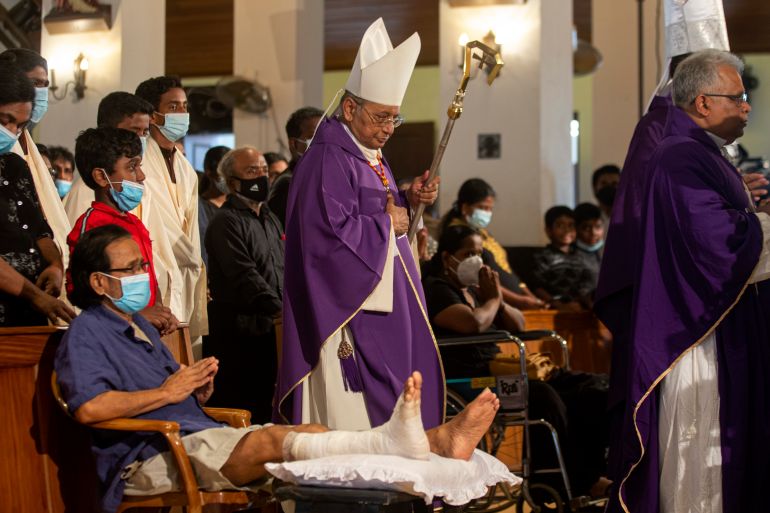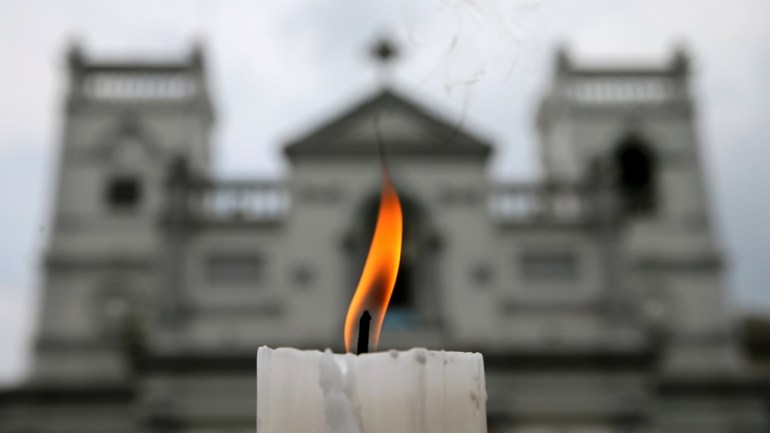Sri Lanka cardinal seeks UN probe into 2019 Easter bombings
Head of the country’s Roman Catholic Church tells UNHCR the massacre now appears to be ‘a grand political plot’.

The head of Sri Lanka’s Roman Catholic Church has urged the United Nations to investigate the 2019 Easter Sunday bombings that killed 279 people, calling the massacre a “political plot”.
In an address to the UN Human Rights Council in Geneva on Monday, Cardinal Malcolm Ranjith demanded a mechanism to probe the attacks, which have been blamed on local Muslim groups.
Keep reading
list of 4 itemsSri Lanka begins trials connected to 2019 Easter Sunday bombings
Sri Lanka indicts ISIL ‘mastermind’ over Easter Sunday bombings
Talks on 2019 blasts require Sri Lankan gov’t credibility: Church
“The first impression of this massacre was that it was purely the work of a few Islamic extremists,” Ranjith said. “However, subsequent investigations indicate that this massacre was part of a grand political plot.”
The Church has previously suggested that the attacks, which targeted three churches and three hotels in Colombo in April 2019, helped Gotabaya Rajapaksa win the presidential elections in November of the same year.

The government has not responded to the Church’s accusations.
Ranjith, who initially supported Rajapaksa’s election as president, said there were attempts by the government “to harass and intimidate those who clamour for justice”.
Catholic priests have been summoned and questioned at length by the Criminal Investigations Department over statements critical of the slow progress in investigations.
“Nearly three years after the horrendous crime, we are still in the dark as to what really happened on that Easter Sunday,” the cardinal said.
His address to the UN Council came a week after meeting with the pope.
Sri Lanka is on the agenda of the UN’s top rights body at the moment for a separate reason.
Last year, it set up a mechanism to gather evidence linked to alleged war crimes during the final stages of the island’s Tamil separatist conflict, which ended in May 2009.
Allegations that Sri Lankan troops killed at least 40,000 Tamil civilians in the final months of the war go back to a period when Rajapaksa was the top defence official under his elder brother and then president Mahinda.
Both have denied allegations of war crimes.
“We earnestly call upon the UNHRC and all its member countries to support the continuation of evidence gathering initiated by the Council last year and to devise a means to ensure an investigation to unravel the truth behind the Easter Sunday massacre,” the cardinal said.
Last month, Sri Lanka’s High Court acquitted two top officials accused of “crime against humanity” for failing to prevent the Easter Sunday bombings.